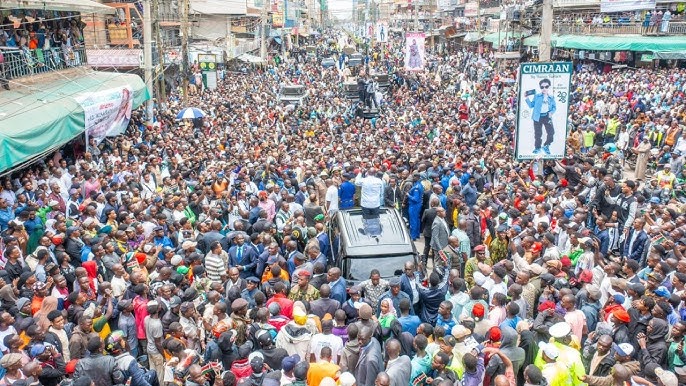Nairobi, Kenya’s vibrant capital, is renowned for its dynamic culture and economic opportunities. However, like many urban centers, it grapples with areas where crime rates are notably higher. For residents, business professionals, and newcomers, being informed about these regions is crucial for safety and strategic planning. This article delves into some of Nairobi’s most insecure estates, shedding light on the challenges they face and offering insights for navigating the city safely.
The Landscape of Insecurity in Nairobi
Several factors contribute to heightened insecurity in specific Nairobi estates:
- Unemployment: Limited job opportunities can lead individuals to engage in criminal activities as a means of survival.
- Poverty: Economic hardships often correlate with increased crime rates, as individuals may resort to theft or other illegal means to meet basic needs.
- Population Density: Overcrowded areas can strain resources and law enforcement, making crime more prevalent and harder to control.
- Gang Activity: The presence of organized gangs exacerbates violence and criminal operations within communities.
Understanding these underlying issues is essential for comprehending the dynamics of crime in Nairobi’s various neighborhoods.
Estates Noted for Elevated Crime Rates
While many areas in Nairobi are safe and thriving, certain estates have been identified as having higher incidences of crime. Awareness of these areas can aid in making informed decisions about residence and travel within the city.
1. Kayole
Kayole has gained notoriety due to the presence of criminal gangs that have historically terrorized residents. The area has been associated with groups such as the Gaza gang, known for violent activities.
Safety Tips:
- Remain vigilant, especially during nighttime.
- Avoid displaying valuable items publicly.
- Engage with local community watch programs for updated information.
2. Kariobangi North
Adjacent to the Korogocho slums, Kariobangi North has experienced instances of violence, sometimes influenced by political tensions. The Mauki family gang has been particularly active in this area.
Safety Tips:
- Limit nighttime movements and use trusted transportation.
- Stay informed about local news and community alerts.
- Foster relationships with neighbors to enhance communal vigilance.
3. Mathare North
Mathare North, close to Nairobi’s central business district, has faced challenges with criminal gangs. The Mauki gang is among those operating in this area.
Safety Tips:
- Be cautious when using public transportation.
- Secure personal belongings and avoid isolated areas.
- Participate in or support local initiatives aimed at reducing crime.
4. Kibera
As one of Africa’s largest informal settlements, Kibera has contended with various security challenges. Criminal gangs from this area have been known to extend their activities to neighboring estates.
Safety Tips:
- Seek guidance from local residents or guides when navigating the area.
- Avoid unfamiliar routes and remain within well-trafficked zones.
- Support community programs focused on youth engagement and crime prevention.
5. Eastleigh
Eastleigh has been identified as a hub for the Superpower Gang, which has been involved in various criminal activities.
Safety Tips:
- Stay alert in crowded places where pickpocketing is common.
- Use reputable taxi services, especially during late hours.
- Keep abreast of local advisories and security updates.
6. Mukuru Slums
Comprising areas like Mukuru Kwa Reuben and Mukuru Kwa Njenga, these slums have reported incidents of robbery and assault. The dense population and informal housing contribute to the complexity of maintaining security.
Safety Tips:
- Avoid venturing into the area alone, particularly after dark.
- Be discreet with valuables and limit cash on hand.
- Engage with local organizations working towards improving safety and living conditions.
7. Dandora
Dandora, known for housing Nairobi’s main dumpsite, has faced security issues, including violent crimes. The area has been a hotspot for criminal activities, with gangs exerting influence over certain zones.
Safety Tips:
- Exercise caution when navigating the area, even during daylight.
- Utilize community resources to stay informed about safe zones.
- Consider alternative routes or transportation methods to minimize risk.
8. Korogocho
Korogocho slum has been marked by high crime rates, with incidents of theft and assault being reported. The area’s challenges are compounded by socio-economic factors and limited law enforcement presence.
Safety Tips:
- Maintain a low profile and avoid drawing attention to yourself.
- Travel in groups when possible and inform someone of your itinerary.
- Support and collaborate with community-led safety initiatives.
9. Muthurwa
Muthurwa market area has seen cases of petty theft and muggings, particularly targeting unsuspecting shoppers and vendors. The bustling environment provides cover for pickpockets and opportunistic criminals.
Safety Tips:
- Stay alert and keep personal items secure and close to your body.
- Be cautious when handling money in public view.
- Report any suspicious activities to market authorities or local law enforcement.
10. Huruma
Huruma has experienced security challenges, with reports of muggings and gang activities. The Brotherhood family gang has been noted to operate in this area.
Safety Tips:
- Be vigilant during early morning and evening hours when incidents are more prevalent.
- Establish connections with local community groups focused on safety.
- Avoid shortcuts through poorly lit or secluded areas.
Navigating Nairobi Safely: Practical Tips
Ensuring personal safety requires proactive measures and situational awareness:
- Stay Informed: Regularly check local news sources and community bulletins for updates on security situations.
- Plan Routes Wisely: Opt for well-lit, busy streets and avoid known hotspots, especially during off-peak hours.
- Limit Night Travel: If possible, schedule activities during daylight and use trusted transportation options when traveling at night.
- Secure Valuables: Keep belongings like wallets, phones, and jewelry out of sight to deter potential thieves.
- Engage Locally: Building relationships with neighbors and participating in community programs can enhance collective security.





